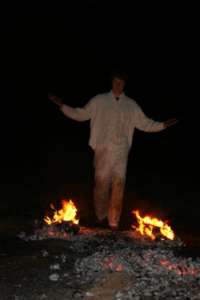Can Courage Be Learned?
There is one characteristic which is common to almost every single one of the people throughout history who are remembered admired: courage. It may be an almost universally revered trait, but it’s not always well understood.
remembered admired: courage. It may be an almost universally revered trait, but it’s not always well understood.
The Canadian psychologist S.J. Rachman studies courage and fear and has stated that most people conflate courage with fearlessness, which Rachman thinks is missing the point. For Rachman, courage is the ability to press on even when experiencing stress and yes, fear.
What is Courage?
In other words, courage isn’t fearlessness so much as it is strength. It’s the strength to act when people without this inner reserve find themselves unable to. It’s the capability to persevere in the face of fear, even when the odds are against you. It’s being able to take action when others despair or in situations where there’s imminent danger to yourself or others.
Who’s the most courageous person you can think of – and who’s the most courageous person you know in your own life? Think about the specific traits these people possess that made you think of them above all others. Personally, I think of Winston Churchill as the most courageous person who I don’t know personally. In charge of the British Navy towards the end of the first World War, he lost his position following a major defeat. Things were tough for Churchill for the next two decades, but he never lost faith in himself and stuck doggedly to his views. He was vindicated when Hitler rose to power and when the war began, Churchill was the natural choice for prime minster.
He’s someone who everyone looked to, because he had a long record of saying exactly where he stood and Britain and the world saw Churchill’s courage time and time again during the war years. It was his courage and resolve that provided Britain with the inspiration they needed to fight on when the situation looked bleak. However, Churchill wasn’t necessarily someone who you might have thought would be this pillar of strength and courage. As Stephen Mansfield revealed in his biography Never Give In: The Extraordinary Character of Winston Churchill, he wasn’t a physically imposing child and was in fact bullied in his youth. He overcame this and every other obstacle he encountered in his life to become practically synonymous with courage.
Mansfield says that courage, “cannot be taught, though it can be inspired. He says that courage is a trait which often lies dormant until it is most needed. One thing Mansfield states about courage that we can all agree on is that “true leadership is impossible without it.” Churchill himself said, “Courage is rightly esteemed the first of human qualities, because it is the quality that guarantees all others.”
Mansfield’s opinion is that teaching someone courage on the order of a Martin Luther King, a Ghandi or indeed, a Churchill may not be possible. At the same time, courage really is a characteristic that can be if not learned as such, fostered. Just knowing that one can cultivate this trait is inspiring and gives something to aspire to for any person who would like to become more courageous.
In the course of his research, Rachman studied British military bomb squads working in Northern Ireland and observed that these soldiers successfully cultivated their own courage, even if they started with low self-confidence or tolerance for stress. This courage, at least in the case of these men, was the result of intensive training for the dangers of their highly specialized task. It’s not just being prepared, but knowing that you’re ready for what you may face that helps people be more courageous.
As Denis Waitley says, fear is one of the strongest motivators of human behavior. However, it’s not the strongest motivator and we can choose to draw motivation from our own inner reserves of strength and overcome fear. Waitley is a former Navy pilot who had the opportunity to witness the training of US astronauts. These people have undergone some of the most intensive training to be found anywhere; and that’s why they can keep their cool and act in even the most dangerous situations. This is why Neil Armstrong said after walking on the moon, “It was just like a drill. It was just like we planned it.”
Some people are innately courageous, but for the rest of us, courage can come with enough preparation and training. When we begin anything, we know that there is an end – and this knowledge can also cause fear, since we can’t anticipate exactly what the end will be. To fill in the blanks in what we know, we often dwell on the worst possible outcome; which is why preparation and training can be so powerful in banishing fear. We all have some area of our life we could use some more courage in – what is it for you?



